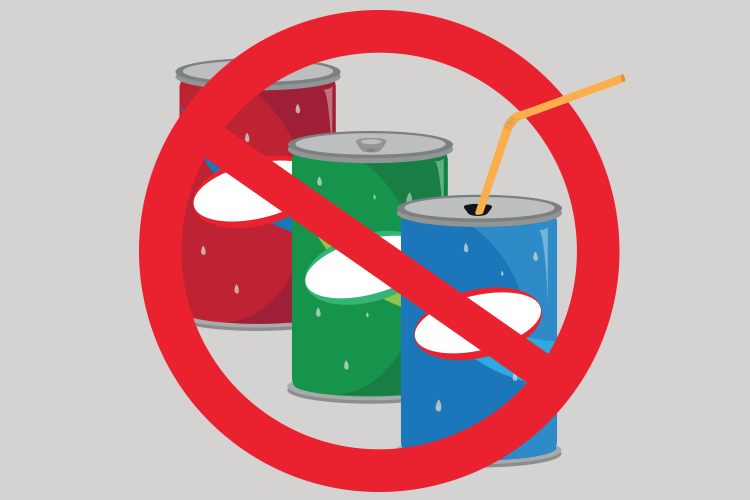Blog
Energy drinks can hurt our kids
We’ve discussed energy drinks before, and how our kids really shouldn’t touch them.
But as deaths occur with overconsumption and the industry continues to push advertising and promotion of these beverages, including at community events and with endorsement by athletes, it is more important than ever to understand and educate kids and teens that this is not a beverage to mess around with.
A recent study out of Western Australia found teens and young adults aged 12-25 years were aware that energy drinks contain sugar and caffeine. But many did not understand how the beverages impact energy, what an appropriate serve was, and were unable to name any additional ingredients.1
A U.S. study of 21-25-year-olds found energy drink consumption, starting when younger, might also lead to increased risk for harder substance use later in life, such as cocaine, alcohol, and prescription drugs for non-medical reasons.2
Energy drink consumption among Australian kids is becoming increasingly popular, with 10 years being the average age to begin drinking such beverages. And many experience side effects.3
Tremors, irritability, insomnia, increased blood pressure, heart palpitations and digestive upset are common side effects, and drinking energy drinks may even lead to hallucinations, stroke, seizures or sudden death.4-6
Recently, one kid died in the U.S. after knocking back too much energy drink and coffee in quick succession, his father now imploring, “Parents, talk to your kids about the dangers of these energy drinks.”
There is little doubt this kid didn’t know the harm he was inflicting on his body from the caffeine and sugar overload. It is up to parents, schools, industry and government to teach them.
What we can do
Studies show removing sugary drinks from sale is an effective way to reduce consumption. While it must be stated on the packaging that these drinks are not recommended for children, pregnant or lactating women, or caffeine sensitive persons, there is little other regulation stipulating where, when and to whom (including children) products like these are sold.
What parents or carers can do is limit exposure to sugar-sweetened beverages altogether. Sub out sugary drinks with water and encourage your kid’s schools to do the same.
If your child or teen must have a sugary drink, it should not be an everyday affair.
Caffeinated, sugary drinks disrupt sleep. This results in moodiness, irritability, weakened immune system and poor concentration and performance at school. Not ideal!
For those that believe such drinks are needed to enhance performance on the sports field, think again. Hard work, practice, water and nutrition from real food are adequate enough. The side effects of energy drinks on growing bodies are not worth the risk.
More generally, ensure your children (littlies or teens) are fed with real, nourishing foods to sustain energy and keep them powering on. This may help lessen inclination to reach for a sugary drink.
Of course, with lunch money in their hand, we are somewhat limited in controlling how our children choose to spend it, be it at school, the local Macca’s, or corner shop. We must remember the pressure kids feel when ALL their mates are drinking stuff that “gives you wings” and that teens especially feel invincible and constantly driven to experiment.
Consider having an adult conversation with them about dangers and limits for consuming these types of drinks. Ask them to choose wisely, and if they do drink them, not to go overboard.
It is not worth it.
By Angela Johnson (BHSc Nut. Med)
References:
- Francis, J, Martin, K, Costa, B, Christian, H, Kaur, S, Harray, A, Barblett, A, Oddy, WH, Ambrosini, G, Allen, K, & Trapp, G 2017, ‘Research Article: Informing Intervention Strategies to Reduce Energy Drink Consumption in Young People: Findings From Qualitative Research’, Journal of Nutrition Education and Behavior, vol. 49, pp. 724-733.e1.
- Arria, AM, Caldeira, KM, Bugbee, BA, Vincent, KB, & O’grady, KE 2017, ‘Trajectories of energy drink consumption and subsequent drug use during young adulthood’, Drug & Alcohol Dependence, vol. 179, pp. 424-432.
- Costa, BM, Hayley, A, & Miller, P 2016, ‘Adolescent energy drink consumption: An Australian perspective’, Appetite, vol. 105, pp. 638-642.
- Fletcher, EA, Lacey, CS, Aaron, M, Kolasa, M, Occiano, A, & Shah, SA 2017, ‘Randomized Controlled Trial of High-Volume Energy Drink Versus Caffeine Consumption on ECG and Hemodynamic Parameters’, Journal Of The American Heart Association, vol. 6, no. 5.
- Gunja, N & Brown, JA 2012, “Energy drinks: health risks and toxicity”, The Medical Journal of Australia, 196, no. 1, pp 46-49.
- Seifert, SM, Schaechter, JL, Hershorin, ER, & Lipshultz, SE 2011, ‘Health effects of energy drinks on children, adolescents, and young adults’, Pediatrics, no. 3, p. 511.












